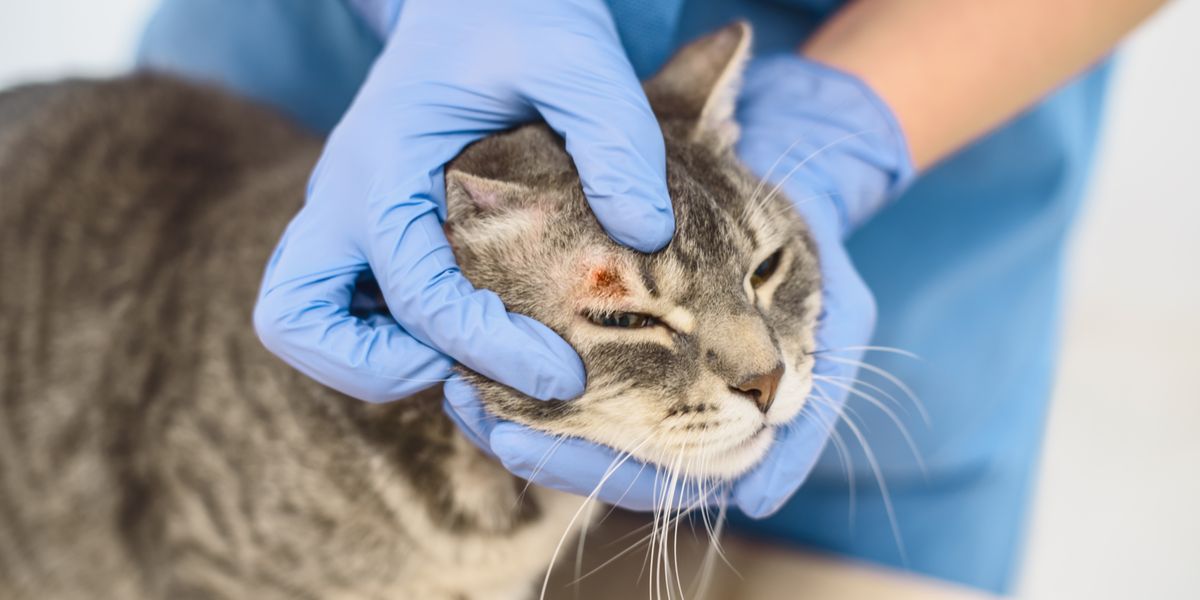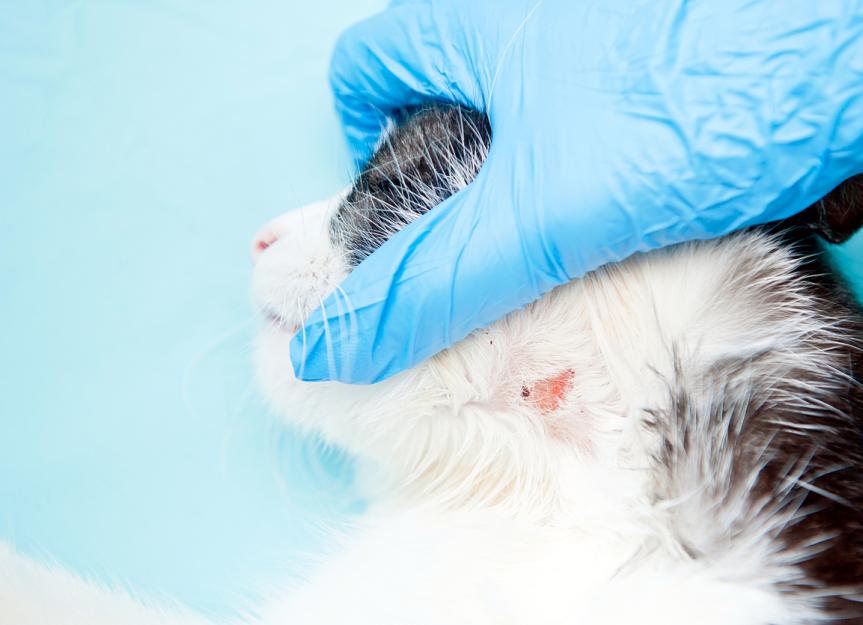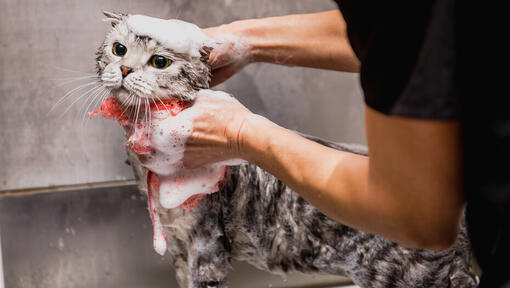Introduction:
Ringworm is a common fungal infection that can affect kittens, causing discomfort and potential spread to other animals and humans. In this comprehensive article, we will explore various treatment options for ringworm in kittens. Understanding how to effectively manage and treat this condition is crucial for the well-being of both the kittens and their human caregivers.
Treating Ringworm in Kittens: An Overview:
Ringworm, despite its name, is not caused by worms but by a group of fungi known as dermatophytes. Kittens are particularly susceptible to ringworm due to their developing immune systems and close contact with other animals. Common symptoms of ringworm in kittens include:
- Circular Patches of Hair Loss:
Ringworm often presents as round, scaly patches of hair loss on the kitten’s skin. These patches may be accompanied by redness or inflammation.
- Itching and Irritation:
Kittens with ringworm may experience itching and discomfort, leading to excessive scratching or grooming.
- Crusty or Broken Hairs:
Infected hairs may become brittle, crusty, or broken, contributing to the characteristic appearance of ringworm lesions.
- Spreading of Infection:
Ringworm can spread rapidly between kittens or to other animals and humans. It is essential to isolate infected kittens and take appropriate precautions to prevent transmission.
Recommended:
- Petco Review: The Power of Together
- PetSmart Review: Where Pets Inspire Us
- Hill’s Pet Nutrition Review: Pioneering Pet Health and Nutrition
- Royal Canine Review: Tailored Nutrition for Every Pet
- Chewy Review: Pet Care at Your Doorstep
Treating Ringworm in Kittens: Effective Strategies:
When it comes to treating ringworm in kittens, a comprehensive approach is necessary to eliminate the infection and prevent its recurrence. Here are several strategies to consider:
- Veterinary Consultation:
Seek professional veterinary advice for an accurate diagnosis and treatment plan tailored to your kitten’s specific needs. The veterinarian may perform tests, such as fungal cultures or microscopic examinations, to confirm the presence of ringworm.
- Topical Antifungal Medications:
Topical antifungal creams, ointments, or sprays are commonly used to treat ringworm in kittens. These medications are applied directly to the affected areas, following the veterinarian’s instructions for frequency and duration.
- Systemic Antifungal Medications:
In more severe cases or when the infection is widespread, the veterinarian may prescribe oral antifungal medications. These medications help eliminate the fungus from within the kitten’s system and are typically administered for several weeks.
- Environmental Decontamination:
Ringworm spores can survive in the environment, potentially leading to reinfection. Thoroughly clean and disinfect your home, including bedding, toys, and any surfaces the infected kittens had contact with. Vacuuming and regular washing of items can help remove spores.
- Isolation and Preventive Measures:
Isolate infected kittens from healthy ones to prevent the spread of ringworm. Practice good hygiene, including handwashing after handling infected kittens and wearing gloves when applying topical medications.
- Supportive Care:
Provide a healthy diet, proper grooming, and a stress-free environment to support the kitten’s immune system and overall well-being. A healthy immune system can aid in fighting off the infection.
- Regular Monitoring and Follow-up:
Monitor the progress of treatment and follow-up with the veterinarian as directed. Additional tests or treatment adjustments may be necessary to ensure complete resolution of the infection.
Conclusion:
Treating ringworm in kittens requires a multifaceted approach that combines veterinary care, topical and systemic antifungal medications, environmental decontamination, and preventive measures. By following these strategies and working closely with your veterinarian, you can effectively manage ringworm in kittens and provide them with the care they need for a full recovery.

References:
- Moriello, K. A. (2015). Feline dermatophytosis. Veterinary Clinics: Small Animal Practice, 45(3), 527-541.
- Noli, C., & Álvarez, N. (2015). Dermatophytosis in cats: ABCD guidelines on prevention and management. Journal of Feline Medicine and Surgery, 17(7), 594-604.
- Sykes, J. E. (2014). Feline dermatophytosis. Veterinary Clinics: Small Animal Practice, 44(3), 507-721.
- Verbrugghe, A., & Hesta, M. (2017). Cats and dermatophytes: How to protect yourself and your environment? Vlaams Diergeneeskundig Tijdschrift, 86(3), 163-169.



